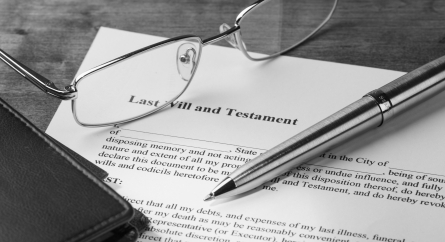Update on Revised DOR Income Tax Pandemic Regulations for Telecommuters
On March 5, 2021, the Massachusetts Department of Revenue (DOR) codified final regulations to extend Massachusetts income tax withholding to non-residents formerly commuting to Massachusetts but now telecommuting due to the COVID-19 pandemic. The regulations extend such income tax withholding through 90 days after the date on which the Governor of the Commonwealth gives notice that the Massachusetts COVID-19 state of emergency is no longer in effect. The original regulations, by contrast, codified on October 16, 2020, were set to expire at the end of December 2020.
Under the final regulations, all compensation received for services performed by a non-resident who, immediately prior to the Massachusetts COVID-19 state of emergency, was an employee engaged in performing such services in Massachusetts, and who is performing services from a location outside Massachusetts due to a Pandemic-Related Circumstances, will continue to be treated as Massachusetts source income subject to personal income tax and personal income tax withholding.
The regulations define Pandemic-Related Circumstances as the following: (a) a government order issued in response to the COVID-19 pandemic, (b) a remote work policy adopted by an employer in compliance with federal or state government guidance or public health recommendations relating to the COVID-19 pandemic, (c) the worker’s compliance with quarantine, isolation directions relating to a COVID-19 diagnosis or suspected diagnosis, or advice of a physician relating to COVID-19 exposure, or (d) any other work arrangement in which an employee who performed services at a location in Massachusetts prior to the Massachusetts COVID-19 state of emergency performs such services for the employer from a location outside Massachusetts during a period in which the regulations are in effect.
As we wrote in October, the State of New Hampshire has challenged the legitimacy of these regulations in a Motion for Leave to File Bill of Complaint with the United States Supreme Court, filed on October 19, 2020. New Hampshire argues that under the Commerce Clause and the Due Process Clause of the U.S. Constitution, the Commonwealth of Massachusetts cannot tax non-residents on income attributable to services performed outside Massachusetts. New Hampshire notes that to pass constitutional muster, a state tax on nonresidents must be “fairly apportioned and “fairly related” to the services provided by the State. Income earned by a nonresident who works outside of the State must not be subject to taxation by any State, other than the residence state (Motion for Leave to File Bill of Complaint pages 7-8).
The Commonwealth of Massachusetts has argued that the case is not appropriate for the Supreme Court’s original jurisdiction. Massachusetts argues the issues presented are better suited for resolution through the ordinary processes for challenging state taxes, and that New Hampshire does not have standing to bring the case. The Commonwealth in its brief states, “this case concerns only a temporary emergency rule maintaining the status quo on sourcing income for non-resident employees who are suddenly telecommuting to their Massachusetts jobs from elsewhere amidst the COVID-19 pandemic.” Therefore, the Commonwealth argues the case is unsuitable to the Supreme Court’s original jurisdiction (Brief in Opposition to Motion for Leave to File Complaint page 13).
New Hampshire’s petition to the Supreme Court received some welcome support in the form of an amici curiae brief (also known as a “friend of the court” brief) submitted on behalf of the State of New Jersey and joined by Connecticut, Hawaii, and Iowa. In January, the Supreme Court also asked the Acting Solicitor General of the United States to weigh in on the debate.
It is now a year after the Governor of Massachusetts declared a state of emergency. At what point should a rule no longer be viewed as a temporary emergency rule? While we await the Supreme Court’s decision as to whether to take the State of New Hampshire’s case, Massachusetts employers must still withhold Massachusetts income taxes from non-residents telecommuting during the prolonged pandemic or face significant penalties. Meanwhile Taxpayers who are residents of New Hampshire but haven’t returned to their Massachusetts offices should secure their rights to claim a refund of any Massachusetts withholdings in the event the Supreme Court rules in favor of New Hampshire’s position.
Categorized: COVID-19 Resources, Taxes
Tagged In: coronavirus, COVID-19, Department of Revenue in Massachusetts, DOR, Income Tax, telecommute









